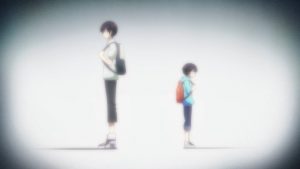 There was a lot riding on the Kuro origin story for Kai Byoui Ramune – it’s had a lot of buildup and foreshadowing but not much real exploration. But truthfully I was never worried. This series has yet to disappoint me – it nails everything it tries to do, pretty much. It so obviously has highly competent writing and a masterfully-planned adaptation that there never seemed a chance it wouldn’t get something this important right. And for one episode at least, it doesn’t disappoint. I don’t know if this arc will take us to the end of the series (there’s more to discuss about that) but it’s clearly just getting started.
There was a lot riding on the Kuro origin story for Kai Byoui Ramune – it’s had a lot of buildup and foreshadowing but not much real exploration. But truthfully I was never worried. This series has yet to disappoint me – it nails everything it tries to do, pretty much. It so obviously has highly competent writing and a masterfully-planned adaptation that there never seemed a chance it wouldn’t get something this important right. And for one episode at least, it doesn’t disappoint. I don’t know if this arc will take us to the end of the series (there’s more to discuss about that) but it’s clearly just getting started.
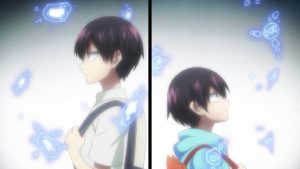 It all starts with something as simple as a name – because I don’t think we’ve ever heard Kuro’s before now. It’s Tooru in fact – Kuromori Tooru. As we were told his family runs a dojo, something judo-related (I’m no expert) I think. And it’s a big family too – Tooru has two older brothers (played by Ohsaka Ryouta and Fukyama Jun no less) and two younger sisters. His father is the master of the dojo, and his mother seemingly the one who holds the family together. There are no shocking revelations in any of that, to be sure.
It all starts with something as simple as a name – because I don’t think we’ve ever heard Kuro’s before now. It’s Tooru in fact – Kuromori Tooru. As we were told his family runs a dojo, something judo-related (I’m no expert) I think. And it’s a big family too – Tooru has two older brothers (played by Ohsaka Ryouta and Fukyama Jun no less) and two younger sisters. His father is the master of the dojo, and his mother seemingly the one who holds the family together. There are no shocking revelations in any of that, to be sure.
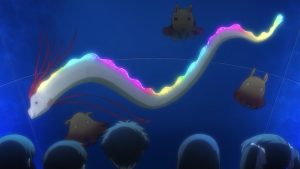 A couple of things struck me about this dynamic, however. For one it seems to be a pretty close-knit and loving family even if Dad is a bit of a hard-ass – I’d been expecting something different (though based on no hard evidence I freely admit). His older brothers look out for Tooru and his little sisters adore him. But Kuro (as we know) isn’t “normal”. He claims to be able to see things that to other people aren’t there. Of course we know he’s right, but I don’t blame his mother for taking him to a psychiatrist – it’s not bad parenting, just parenting with bad results.
A couple of things struck me about this dynamic, however. For one it seems to be a pretty close-knit and loving family even if Dad is a bit of a hard-ass – I’d been expecting something different (though based on no hard evidence I freely admit). His older brothers look out for Tooru and his little sisters adore him. But Kuro (as we know) isn’t “normal”. He claims to be able to see things that to other people aren’t there. Of course we know he’s right, but I don’t blame his mother for taking him to a psychiatrist – it’s not bad parenting, just parenting with bad results.
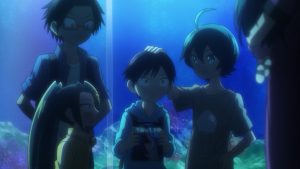 Poor Kuro. He’s a smart, sensitive, and sweet-natured boy and the lesson he takes away from this is “I’m sick. I have to pretend to be something I’m not.” Again this is not bad parenting, just a bad outcome, but it’s bad just the same. Tooru is also saddled with the “he’s the smartest and most mature” label, especially by his big brothers. Again, this is well-meaning and driven by love, but the results are unfortunate. His brothers continue to try and look out for Kuro, chalking up his obvious distress (which he can’t hide) to puberty, but their smothering concern only makes him feel worse.
Poor Kuro. He’s a smart, sensitive, and sweet-natured boy and the lesson he takes away from this is “I’m sick. I have to pretend to be something I’m not.” Again this is not bad parenting, just a bad outcome, but it’s bad just the same. Tooru is also saddled with the “he’s the smartest and most mature” label, especially by his big brothers. Again, this is well-meaning and driven by love, but the results are unfortunate. His brothers continue to try and look out for Kuro, chalking up his obvious distress (which he can’t hide) to puberty, but their smothering concern only makes him feel worse.
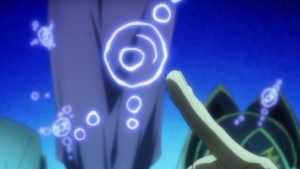 It’s hardly surprising but totally fitting that Kuro himself should be a victim of a mysterious disease, and that it should be this that brings he and Ramune-sensei together. As with all the others, it’s living a lie and suppressing one’s true nature that leads Kuro to illness. In this case he’s vomiting sand, and as a result he’s starving himself and barely sleeping. In desperation he visits the “Manumerous Group” after seeing an ad in the paper, but this is only the start of Tooru’s real problems. This is a cult, make no mistake – Japan is riddled with them but hardly alone in that. And their sinister leader is only too willing to “help”.
It’s hardly surprising but totally fitting that Kuro himself should be a victim of a mysterious disease, and that it should be this that brings he and Ramune-sensei together. As with all the others, it’s living a lie and suppressing one’s true nature that leads Kuro to illness. In this case he’s vomiting sand, and as a result he’s starving himself and barely sleeping. In desperation he visits the “Manumerous Group” after seeing an ad in the paper, but this is only the start of Tooru’s real problems. This is a cult, make no mistake – Japan is riddled with them but hardly alone in that. And their sinister leader is only too willing to “help”.
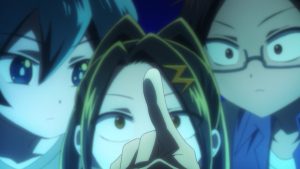 “Only I can fix it”. The minute you hear that, run – but Tooru is a little boy in karmic distress, and can’t be expected to know that. It’s unfortunate that circumstances lead Kuro to believe it was the cult leader’s mumbo-jumbo that (temporarily) cured him. In fact it was the barrier Ramune-sensei has obviously established around the shrine, where Kuro takes refuge rather than go home and face his family. Exhausted and starving but relieved for the moment of his burdens, the lad falls asleep in front of the offering box, which is where Sensei finds him. He immediately sees to the truth of it – this child is sick and needs help.
“Only I can fix it”. The minute you hear that, run – but Tooru is a little boy in karmic distress, and can’t be expected to know that. It’s unfortunate that circumstances lead Kuro to believe it was the cult leader’s mumbo-jumbo that (temporarily) cured him. In fact it was the barrier Ramune-sensei has obviously established around the shrine, where Kuro takes refuge rather than go home and face his family. Exhausted and starving but relieved for the moment of his burdens, the lad falls asleep in front of the offering box, which is where Sensei finds him. He immediately sees to the truth of it – this child is sick and needs help.
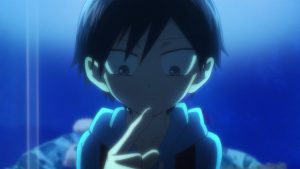 The contrast between Ramune-sensei and the cult leader could not be more stark. Cult-san offers bogus miracles, Sensei offers (anonymously for the moment) what Tooru most acutely needs, food. The leader offers grand promises and tells Kuro what he wants to hear. Sensei offers him the unvarnished truth he needs to hear. Kuro reacts as any vulnerable kid would, believes the former and dismisses the latter – and to him, Sensei most definitely does look suspicious. His “cure” having faded, Kuro returns to the arms of the cult – lying to his family about going to a study camp – but Sensei is unwilling to leave it there.
The contrast between Ramune-sensei and the cult leader could not be more stark. Cult-san offers bogus miracles, Sensei offers (anonymously for the moment) what Tooru most acutely needs, food. The leader offers grand promises and tells Kuro what he wants to hear. Sensei offers him the unvarnished truth he needs to hear. Kuro reacts as any vulnerable kid would, believes the former and dismisses the latter – and to him, Sensei most definitely does look suspicious. His “cure” having faded, Kuro returns to the arms of the cult – lying to his family about going to a study camp – but Sensei is unwilling to leave it there.
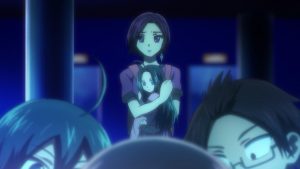 This is who Ramune-sensei is, and it defines him as a character. Kuro punches him (in his sleep), judo-throws him and gets him arrested, but Sensei never hesitates in helping him. I don’t think Sensei can say no to anyone in trouble irrespective of the hardship it causes him (as Momiji-sensei and Ayame have both scolded him for), but especially a child. He’s a truly noble sort, despite his goofy exterior. And while we know this will have a happy ending and Kuro will come to understand and love him, it’s still hard to watch Kuro in so much pain and confusion right now.
This is who Ramune-sensei is, and it defines him as a character. Kuro punches him (in his sleep), judo-throws him and gets him arrested, but Sensei never hesitates in helping him. I don’t think Sensei can say no to anyone in trouble irrespective of the hardship it causes him (as Momiji-sensei and Ayame have both scolded him for), but especially a child. He’s a truly noble sort, despite his goofy exterior. And while we know this will have a happy ending and Kuro will come to understand and love him, it’s still hard to watch Kuro in so much pain and confusion right now.
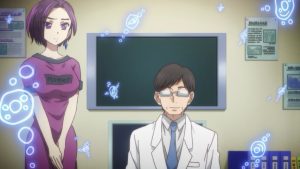 With the news that the Kai Byoui Ramune manga will be ending with the March 5th chapter and fifth volume (though it should be noted that it “ended” in 2019 only to resume a year later), it now seems as if we’re going to get a definitive ending for the anime. And that helps explain how coherent and elegantly-constructed and paced the adaptation has been. I’m sad that such a fantastic story will be ending after only five volumes, but it’s nice to know that the anime will be able to tell the whole story the way mangaka Aho Toro wants it told. This show has been a revelation, even for someone who pegged it as a sleeper – it and Kemono Jihen just keep leapfrogging each other, and I’m loving every minute of it.
With the news that the Kai Byoui Ramune manga will be ending with the March 5th chapter and fifth volume (though it should be noted that it “ended” in 2019 only to resume a year later), it now seems as if we’re going to get a definitive ending for the anime. And that helps explain how coherent and elegantly-constructed and paced the adaptation has been. I’m sad that such a fantastic story will be ending after only five volumes, but it’s nice to know that the anime will be able to tell the whole story the way mangaka Aho Toro wants it told. This show has been a revelation, even for someone who pegged it as a sleeper – it and Kemono Jihen just keep leapfrogging each other, and I’m loving every minute of it.


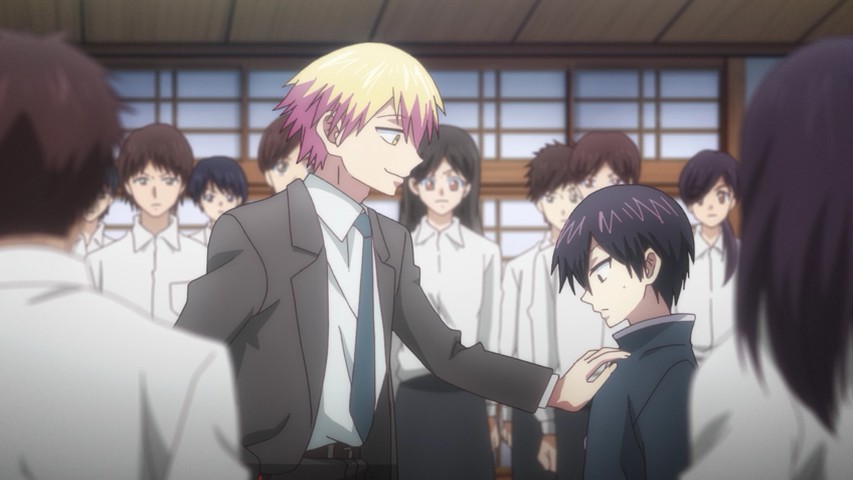
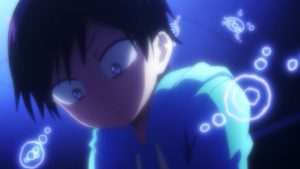
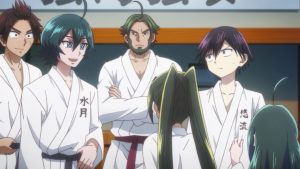
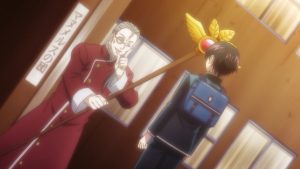
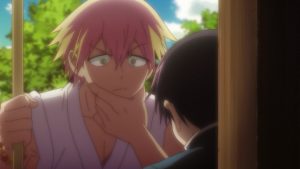
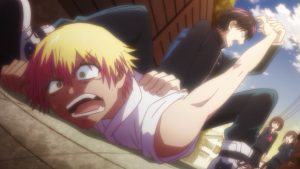
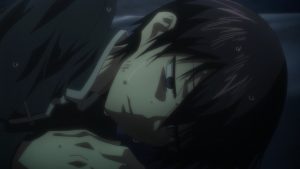
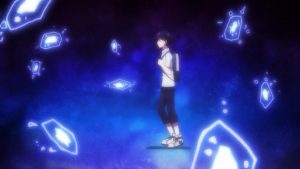
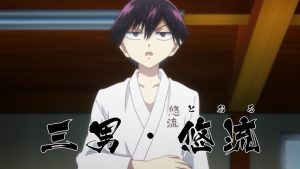
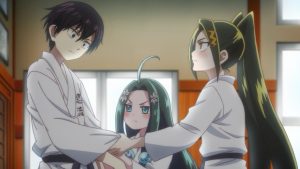
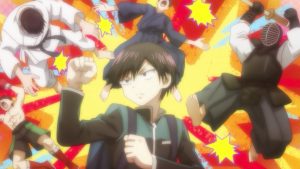
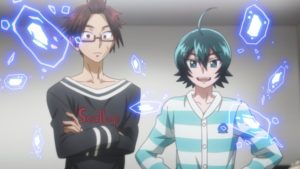
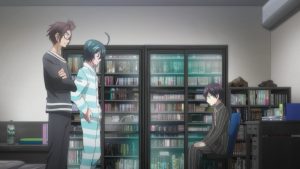
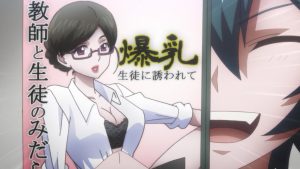
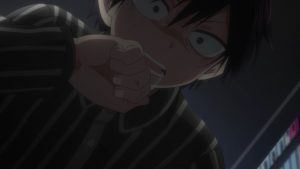

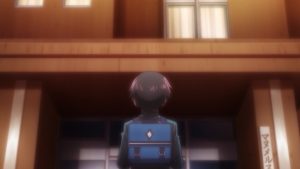
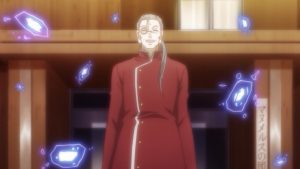
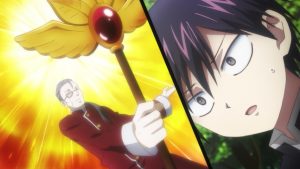
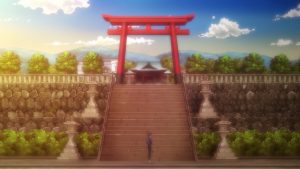
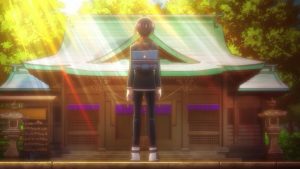
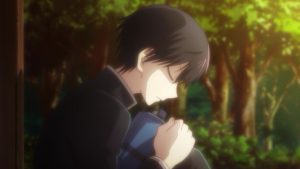
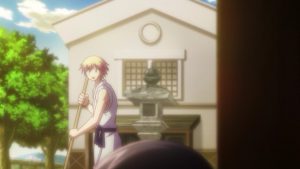
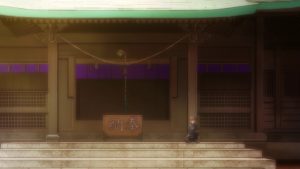
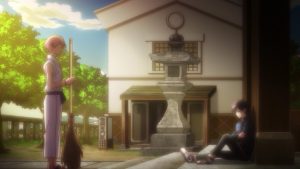
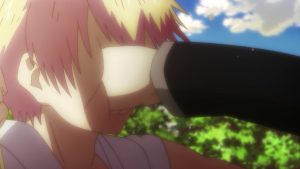
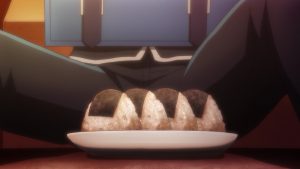
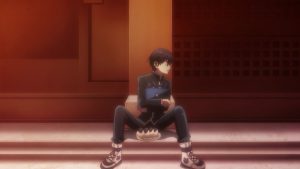
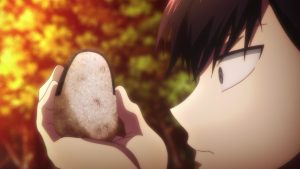
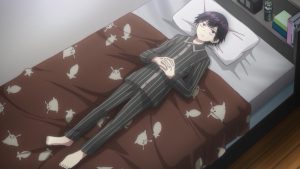
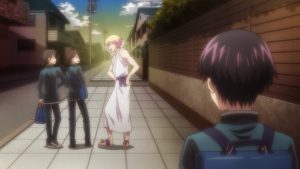
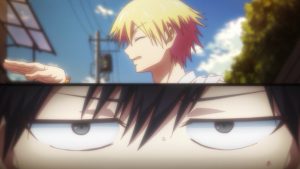
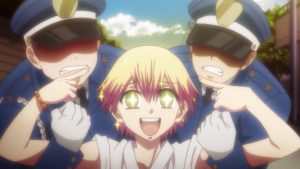
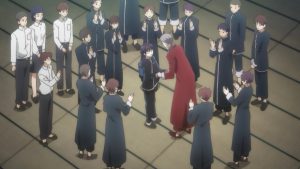
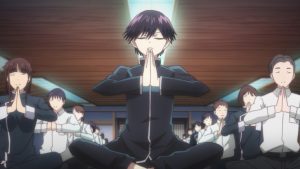
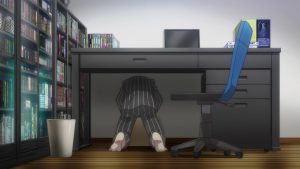
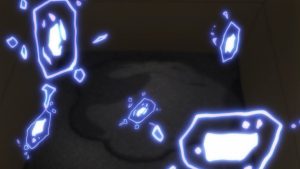
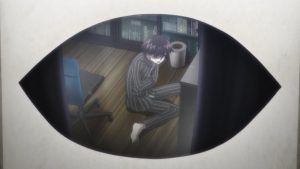
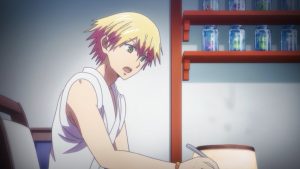
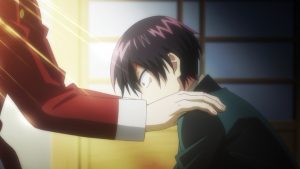
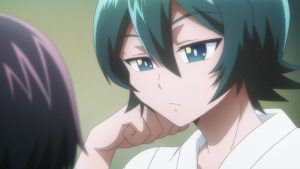
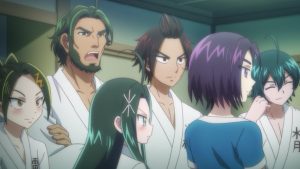
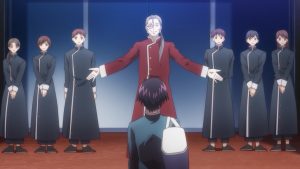
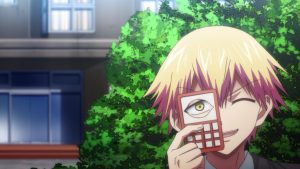
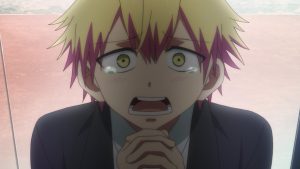
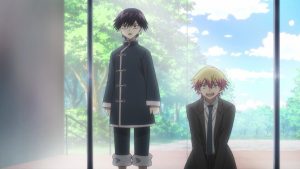
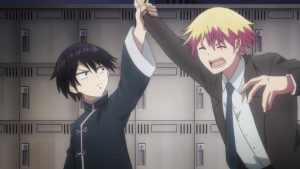
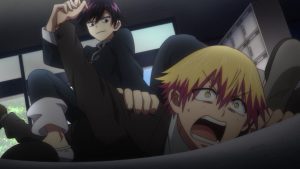
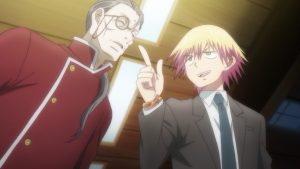
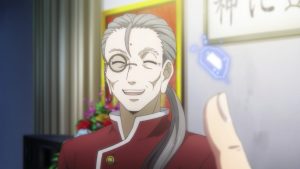
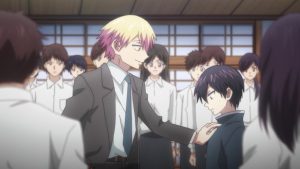
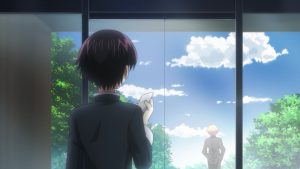
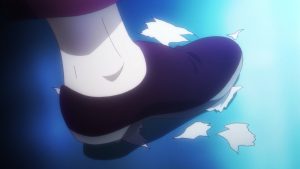
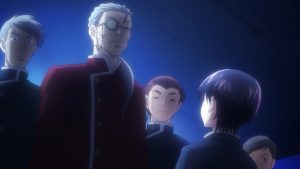
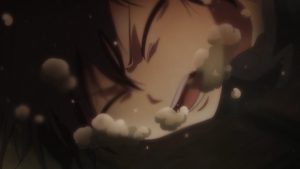
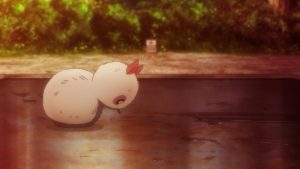
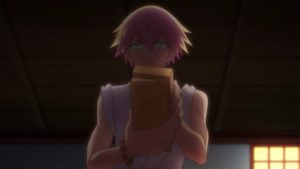
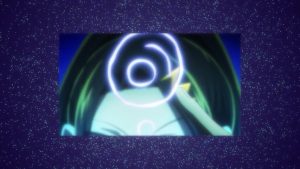
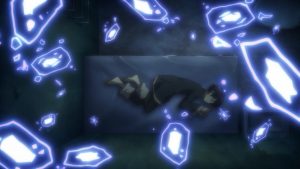
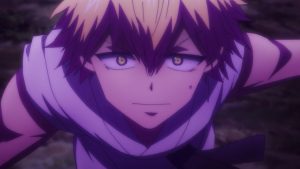
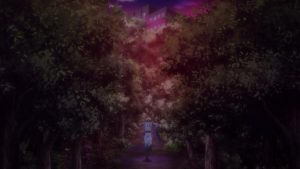
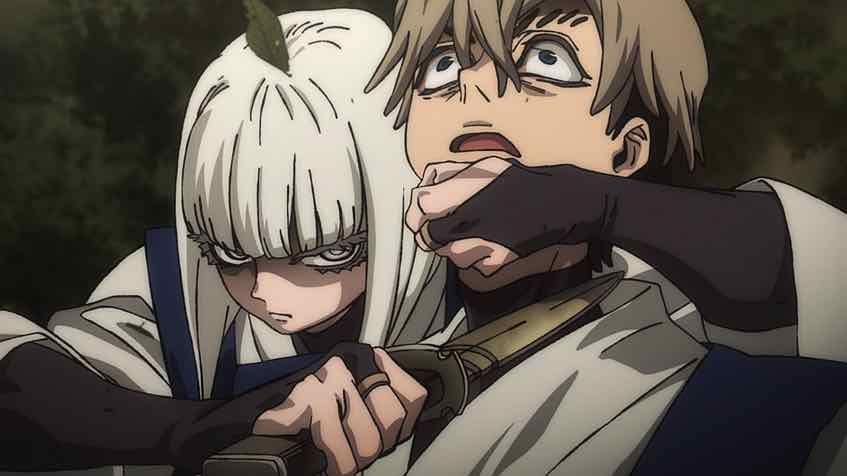
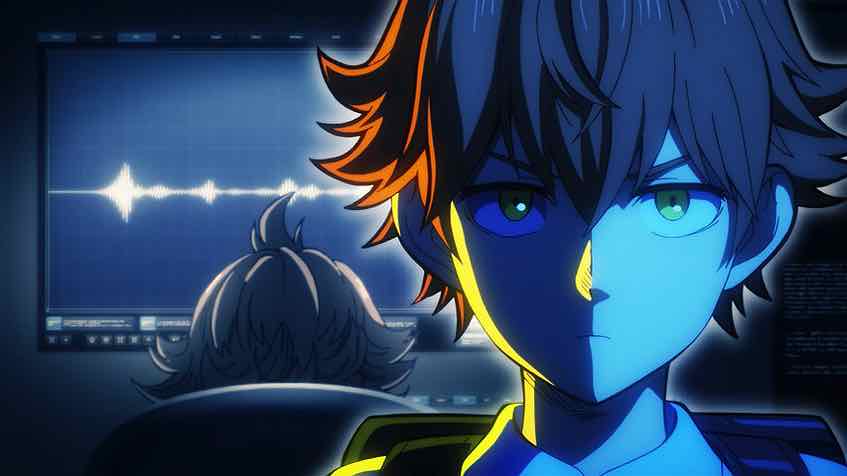
Riv
March 16, 2021 at 12:57 amI had been holding off on watching this– initially the title and premise didn’t appeal to me much, but I was reading your reviews to see how it went. I watched all the eps over the past week and really enjoyed them. Kuro and Sensei really grew on me as characters and now I’m quite invested in them. I’ll be interested to see how it wraps up.
Guardian Enzo
March 16, 2021 at 7:36 amKuro and Sensei are a great mismatched pair. I love the chemistry there.